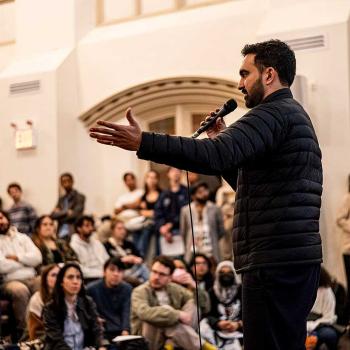
The most fundamental belief in Islam is the belief in one God, or Allah. Associating Allah with equals or partners is considered ‘shirk,’ or idolatry. This is considered the most severe sin in Islam.
In the Quran, shirk is considered so terrible an offence that if a person dies without repenting of this sin, it is considered as if they will never be forgiven. This is why shirk, or idolatry, is sometimes known as the one unforgiveable sin in Islam.
That designation is something of a misnomer, however, since in a person’s lifetime they can repent of this sin and seek forgiveness. Nonetheless, it is the only act for which death ends the possibility of atonement in Islam, and that it is why it is also considered an unforgiveable sin in Islam. The fact that there is an option for it to be unforgiveable makes it a distinctly terrible sin. Shirk can have many interpretations as to what it means, and what constitutes idolatry.
At its core, most fundamental level, to commit shirk is to believe in multiple gods. The concept, however, also includes a variety of other actions which might associate Allah with other powers. One can commit shirk by associating Allah with a lesser divine being, for example, or with a deified human being. Sometimes shirk is not intentional, and there is much discussion over how prayer to intermediaries, or reliance on other sources of religious interpretation, might stray into the sin of shirk.
Some examples include when somebody turns to a source outside of Allah for help or guidance. This might include praying to a source of nature for assistance, such as a river, mountain, or even the sun, or even attributing lucky qualities to an inanimate object. Wearing a talisman, carrying around good luck objects, or even reserving a lucky item of clothing for a big day could all be considered inappropriately associating another power with the power that should be limited only to Allah. Of course, such manifestations are more complicated than when shirk is much more explicit, and includes the actual belief in multiple gods or deities. Today, however, as polytheism has become less widely practices, the discussions of shirk in many Muslim communities includes these more subtle distinctions of practices. Some people even believe that fortune-telling, magic, and other activities designed to see into the future or peer into the afterlife could be considered shirk, because one is seeking answers from people, and powers developed by people, and not from Allah.
3/23/2021 6:32:41 PM










